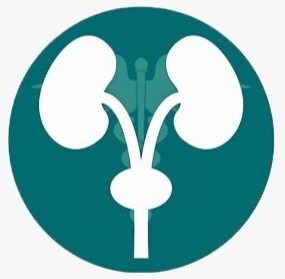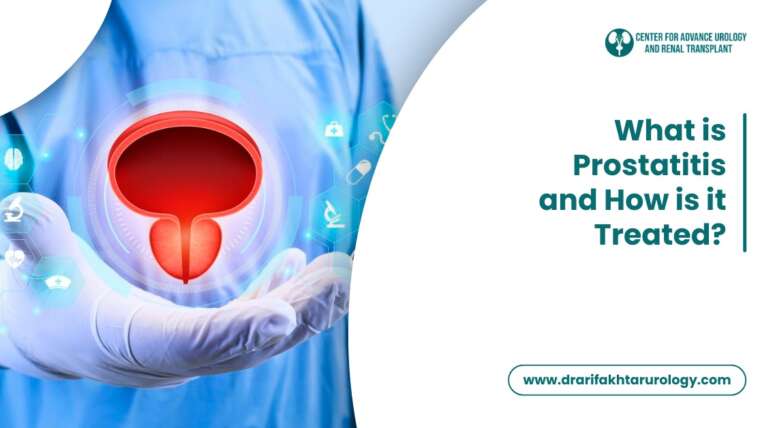Prostate cancer is a prevalent form of cancer that affects men worldwide. While the exact cause of prostate cancer is not fully understood, several risk factors have been identified, and preventive measures can significantly reduce the risk. In this article, we delve into the importance of prostate cancer prevention and highlight lifestyle changes and screening recommendations that can help you maintain optimal prostate health. By adopting these strategies, you can take proactive steps to reduce your risk of developing prostate cancer and lead a healthier life.
Understanding Prostate Cancer and Its Risk Factors
Before discussing prostate cancer prevention, it’s important to understand prostate cancer and the factors that contribute to its development. Prostate cancer occurs when abnormal cells in the prostate gland grow uncontrollably, forming a tumor. While the exact causes are unknown, several risk factors have been identified, including:
Age: Prostate cancer is more common in older men, with the risk increasing significantly after the age of 50.
Family history: Men with a family history of prostate cancer, especially if it affects a first-degree relative (father or brother), have an increased risk.
Race and ethnicity: African American men have a higher risk of prostate cancer compared to men of other racial and ethnic backgrounds. Additionally, prostate cancer tends to be more aggressive in African American men.
Genetics: Certain genetic mutations and inherited gene changes, such as mutations in the BRCA1 or BRCA2 genes, can increase the risk of developing prostate cancer.
Lifestyle factors: Unhealthy lifestyle habits, such as a high-fat diet, obesity, lack of physical activity, and smoking, have been associated with an increased risk of prostate cancer.
By being aware of these risk factors, individuals can take proactive steps to reduce their risk of prostate cancer and prioritize preventive measures.
Lifestyle Changes for Prostate Cancer Prevention
Making certain lifestyle modifications can significantly reduce the risk of developing prostate cancer. Here are some key strategies to consider:
Eat a healthy diet: Adopt a balanced diet rich in fruits, vegetables, whole grains, and lean proteins. Limit the consumption of high-fat foods, particularly those from animal sources. Incorporate foods that are rich in antioxidants and nutrients, such as lycopene (found in tomatoes), selenium (found in nuts and seafood), and green leafy vegetables.
Maintain a healthy weight: Obesity is associated with an increased risk of prostate cancer. Aim to achieve and maintain a healthy weight through a combination of a nutritious diet and regular physical activity.
Engage in regular physical activity: Regular exercise offers numerous health benefits, including a reduced risk of prostate cancer. Aim for at least 150 minutes of moderate-intensity aerobic activity or 75 minutes of vigorous-intensity activity each week. Additionally, include strength training exercises at least twice a week.
Quit smoking: Smoking is linked to an increased risk of developing aggressive forms of prostate cancer. If you smoke, seek support and resources to quit smoking and improve your overall health.
Limit alcohol consumption: Excessive alcohol consumption has been associated with an increased risk of prostate cancer. If you choose to drink alcohol, do so in moderation. Limit your intake to no more than two drinks per day.
Adopting these lifestyle changes can not only reduce the risk of prostate cancer but also have positive effects on overall health and well-being.
Screening Recommendations for Prostate Cancer
Early detection plays a crucial role in effectively managing prostate cancer prevention. Regular screenings help detect the disease in its early stages when treatment options are more effective. Here are the current screening recommendations:
Prostate-specific antigen (PSA) test: The PSA test measures the levels of PSA, a protein produced by the prostate gland, in the blood. Elevated PSA levels may indicate the presence of prostate cancer or other prostate conditions. Starting at age 50, men should discuss the benefits and risks of PSA testing with their healthcare providers. For men at higher risk, such as those with a family history or African American men, discussions should begin at age 45.
Digital rectal exam (DRE): During a DRE, a healthcare provider inserts a gloved finger into the rectum to feel the prostate gland for any abnormalities. The DRE is often performed in conjunction with the PSA test as part of routine screenings.
It’s important to have open discussions with healthcare providers about the benefits and limitations of screening tests. The decision to undergo screening should be based on individual risk factors, personal preferences, and healthcare provider recommendations.
Conclusion: Prostate Cancer Prevention
Prostate cancer preventioninvolves a multifaceted approach, including lifestyle changes and regular screenings. By adopting a healthy lifestyle that includes a nutritious diet, regular exercise, maintaining a healthy weight, and avoiding tobacco and excessive alcohol consumption, individuals can significantly reduce their risk of developing prostate cancer. Additionally, staying proactive about prostate health through regular screenings, such as the PSA test and digital rectal exam, enhances the chances of detecting prostate cancer in its early stages when treatment options are most effective.
FAQs: Prostate Cancer Prevention
Can lifestyle changes really do prostate cancer prevention?
While lifestyle changes cannot guarantee the prostate cancer prevention, they can significantly reduce the risk. Adopting a healthy diet, maintaining a healthy weight, engaging in regular physical activity, and avoiding tobacco and excessive alcohol consumption have been associated with a lower risk of developing prostate cancer. These lifestyle changes also offer numerous other health benefits and contribute to overall well-being.
When should I start getting screened for prostate cancer?
The age at which you should start getting screened for prostate cancer prevention depends on various factors, including your risk level. In general, it is recommended to discuss screening options with your healthcare provider starting at age 50. However, if you are at higher risk, such as having a family history of prostate cancer or being of African American descent, it is advisable to start discussions earlier, around age 45. Ultimately, the decision to undergo screening should be based on individual risk factors and healthcare provider recommendations.
Are there any natural supplements or foods that can help in prostate cancer prevention?
While certain foods and supplements have been studied for their potential role in prostate cancer prevention, there is no definitive evidence to support their effectiveness. However, a diet rich in fruits, vegetables, whole grains, and lean proteins, along with incorporating foods with beneficial nutrients like lycopene and selenium, may contribute to overall prostate health. It’s important to note that supplements should be used with caution, and it is best to consult with a healthcare provider before taking any supplements for prostate cancer prevention.
What should I do if I have a family history of prostate cancer?
Having a family history of prostate cancer does increase your risk of developing the disease. If you have a family history, it is advisable to discuss it with your healthcare provider. They can assess your risk and recommend appropriate screening and monitoring strategies. In some cases, genetic testing may also be considered to identify any inherited gene mutations that may increase the risk of prostate cancer.
Can prostate cancer be prevented completely?
While it is not possible to completely prevent prostate cancer, proactive measures can significantly reduce the risk. By adopting a healthy lifestyle, maintaining a healthy weight, undergoing regular screenings, and managing risk factors, you can take steps to minimize your chances of developing prostate cancer. It is important to remember that early detection through regular screenings plays a crucial role in effective management and treatment of prostate cancer.




